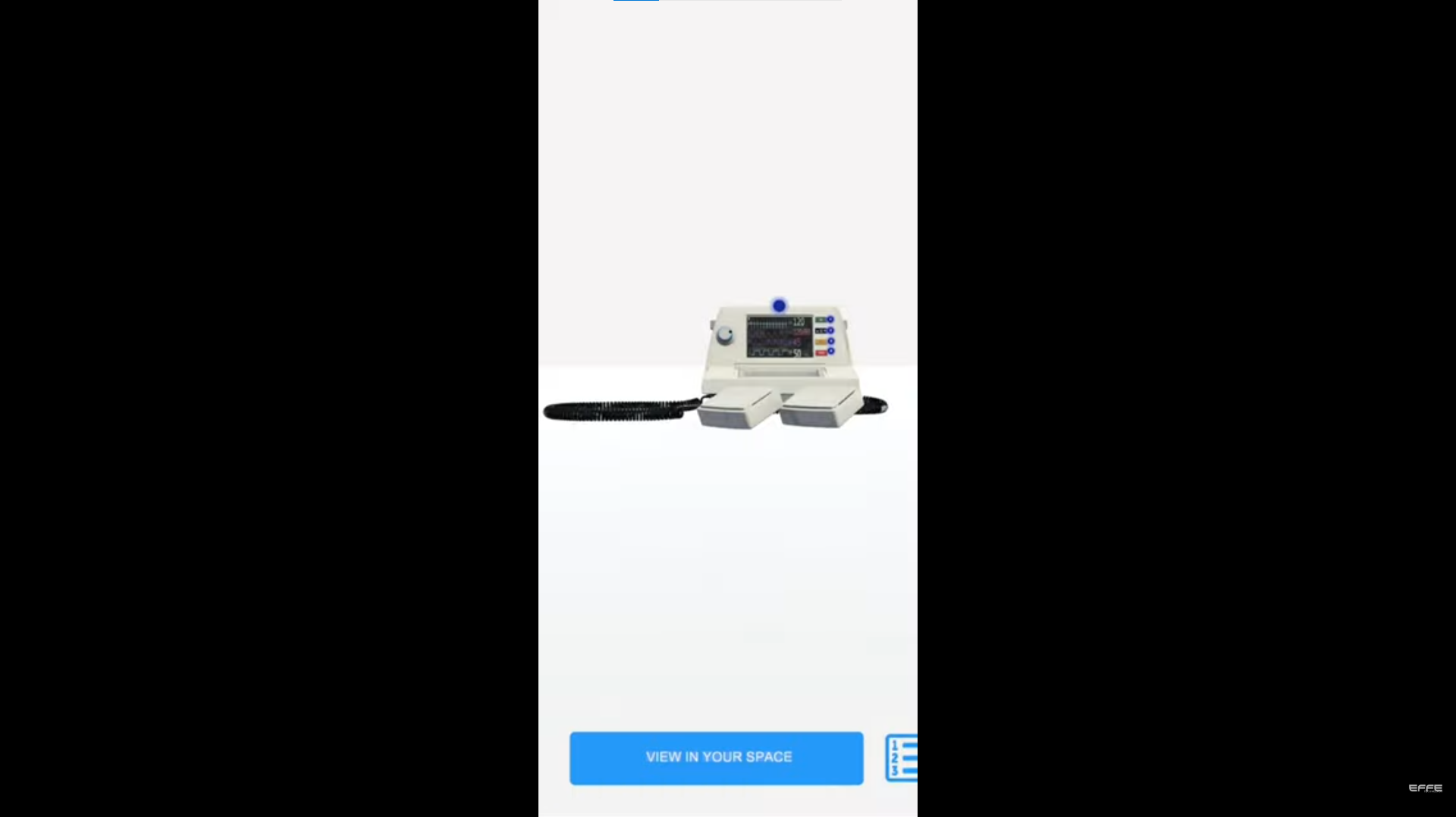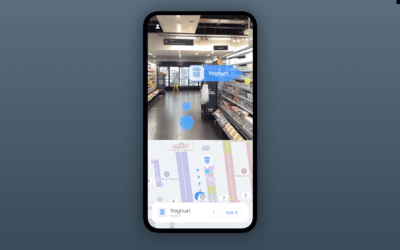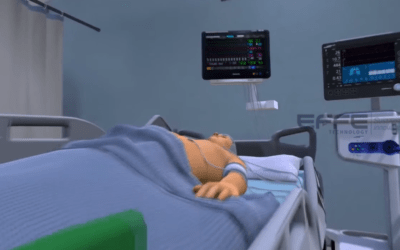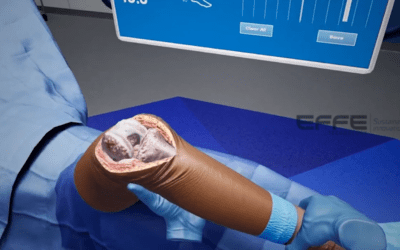Title: AR Mobile Application for Medical Equipment Visualization
Description:
EFFE Technology collaborated with a reputed medical equipment manufacturer to develop an immersive AR mobile application that allows users to visualize and interact with high-end medical equipment in real-world environments. The app showcases products such as MRI machines, ventilators, dental chairs, PAPR systems, and portable MRIs through realistic 3D modeling and Augmented Reality integration.
The project aims to help the client’s marketing and sales teams present complex products effectively to healthcare professionals. This case study highlights how AR in the healthcare industry is transforming how equipment manufacturers communicate product value and innovation.
Project Requirement:
The client wanted a digital tool that could bridge the gap between physical product demonstrations and digital presentations. Since many of their medical machines are large and difficult to transport, a mobile-based AR solution was ideal for virtual demonstrations during trade shows, client meetings, and hospital visits.
The core requirements were:
• Enable 3D visualization of medical equipment in actual environments through mobile devices.
• Allow users to view, rotate, and zoom into each model for detailed exploration.
• Maintain realistic scale and proportion to provide accurate spatial context.
• Create an intuitive user interface that medical professionals could easily navigate.
The client’s primary goal was to showcase innovation and enhance customer engagement using Augmented Reality in the healthcare industry.
Project Planning :
EFFE Technology’s development team began with an in-depth requirement analysis and technical study of each medical product. The planning phase focused on ensuring accurate 3D modeling, seamless AR interaction, and optimized app performance.
Key planning steps included:
• Requirement Gathering: Understanding product structure, specifications, and functional use.
• 3D Model Reference Collection: Gathering CAD drawings and real-world references for accuracy.
• Technology Selection: Choosing a robust AR SDK suitable for mobile platforms (Android and iOS).
• Design & Experience Mapping: Defining an intuitive user journey for quick product access and interaction.
This strategic approach ensured that the AR application in healthcare would meet both marketing and technical objectives effectively.
Project Process & Execution:
The project followed an agile development process with iterative design, testing, and refinement stages.
1. 3D Model Creation:
Our 3D artists developed highly detailed and lightweight models of the medical equipment while preserving textures, materials, and accurate dimensions.
2. AR Integration:
The AR module was built using real-time tracking and surface detection, enabling users to place each piece of equipment in their real surroundings. The application allowed rotation, scaling, and positioning to visualize the equipment as it would appear in an actual hospital room.
3. Interaction Layer:
Interactive features were added — users could tap on product hotspots to view specifications, operational details, and additional visuals.
4. Testing and Performance Optimization:
The app underwent multiple performance tests to ensure stability, accurate scaling, and smooth rendering across different mobile devices.
5. Delivery and Support:
EFFE Technology delivered the final AR mobile app to the client along with technical documentation and demo training for internal use.
Challenges & Learning:
One of the key challenges was ensuring the accurate real-world scale of large equipment like MRI scanners without compromising the mobile app’s performance. Balancing model complexity and smooth rendering required careful optimization of textures and geometry.
Another challenge was creating consistent lighting and surface tracking in varied real-world environments, such as hospital lobbies and trade show floors.
Through this project, our team deepened its expertise in AR applications in healthcare, learning to combine medical precision with interactive digital design.
Client Deliverables:
The final deliverables included:
• A fully functional AR mobile application for Android and iOS.
• Five interactive 3D medical equipment visualizations (MRI, ventilator, dental chair, PAPR, portable MRI).
• Product information overlays and instructional animations.
• User documentation and technical support for deployment.
The client successfully uses the AR app for marketing, sales demonstrations, and training — creating an impactful, cost-effective digital experience that simplifies complex medical technology communication.
Conclusion:
This project showcases the transformative potential of Augmented Reality in the healthcare industry — making product education, sales, and engagement more interactive and effective.
At EFFE Technology, we specialize in developing AR/VR-based mobile and web applications that empower businesses across industries. This medical AR mobile app is a testament to how immersive technology is revolutionizing the way healthcare professionals and manufacturers interact with advanced equipment.




